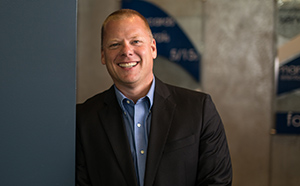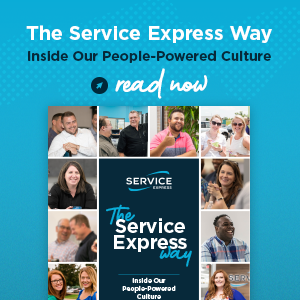There is a cultural thought-pattern afoot that encourages us to evaluate our strengths and weaknesses, and to place our primary efforts on strengthening those areas where we find ourselves “deficient,” so as to become “well rounded” individuals. In many cases, it’s a theory that encourages mediocrity and it prevents individuals from becoming exceptional specialists.

Some context: Surgeons did not always specialize in specific areas of medicine as they do now. There was a time when they studied general medicine in order to be “well rounded” practitioners, that they may have a degree of knowledge for any affliction or malady that may present itself.
Then, the practice of specialization and hyper-specialization was introduced in hospitals. Today, surgeons begin their studies in general medicine and, as they mature in their profession and discover in which area of medicine their natural affinities lay, they focus and refine skills in a specific area in order to become specialists. For example, a cardiothoracic surgeon will abandon undeveloped skills in neurosurgery, and almost every other area of medicine unrelated to their specialty, in favor of multplying their skill in cardiothoracic medicine.
For hospitals and patients, the net result of specialization has been dramatic decreases in mortality rates, decreases in a patients recovery time and hospital stay, and a reduction in the number of mistakes made by medical staff.
Today, a person’s odds of walking out of a hospital after being admitted are significantly greater as a result of specialization.
Specialization is just as applicable to those of us who aren’t in the medical profession. Because we have limited hours in our day, limited energy to expend, and our skill sets are unique, there are diminishing returns when we expend those resources trying to develop too many skills.
The 80/20 Rule
The 80/20 rule says that 80% of the impact will come from 20% of the effort. We must focus our time on those few activities that will have the greatest impact. Those activities are different for every person, because every person has a very unique set of strengths and passion.
I once worked with a Director who was dealing with extreme disappointment with one of the Manager’s she had promoted. Prior to his promotion, the individual had saved the company substantial amounts of money as a result of his natural ability to work with complex data and determine where costs could be cut and revenue maximized. He had, in very short order, become a superstar because he was performing optimally in his “strength’s zone.” As a reward, he was promoted into management. However, his star quickly dimmed with every poor decision that he made, because he lacked communication skills, was indecisive, and did not lead people well. As he tried desperately to sharpen skill-sets that were unnatural to him, his natural skill-sets took a back seat. He had been removed from a position that suited his strengths well – a position where he did not need to employ his weak skills in communication, leading people, or decision making- and he had been placed in a new role where he was expected to perform just as well with a very different set of skills. His new role marginalized his strengths and magnified his weaknesses.
Specialization is the forsaking of many inferior skills for the refinement of a few strengths. The net benefit is this: we become exceptional at some thing rather than mediocre at everything.
At Service Express, every employee has taken the Strength’s Finder assessment and out top 5 strength’s are displayed in our office and on the intranet for all to see. It’s a great tool that we use in our daily conversations with each other and it reminds us that each person is unique and we must be intentional about how we utilize ourselves and each other.
Here’s a great video of Andy Stanley, who talks about “fully exploited strengths” vs “marginally strengthened weaknesses.”

